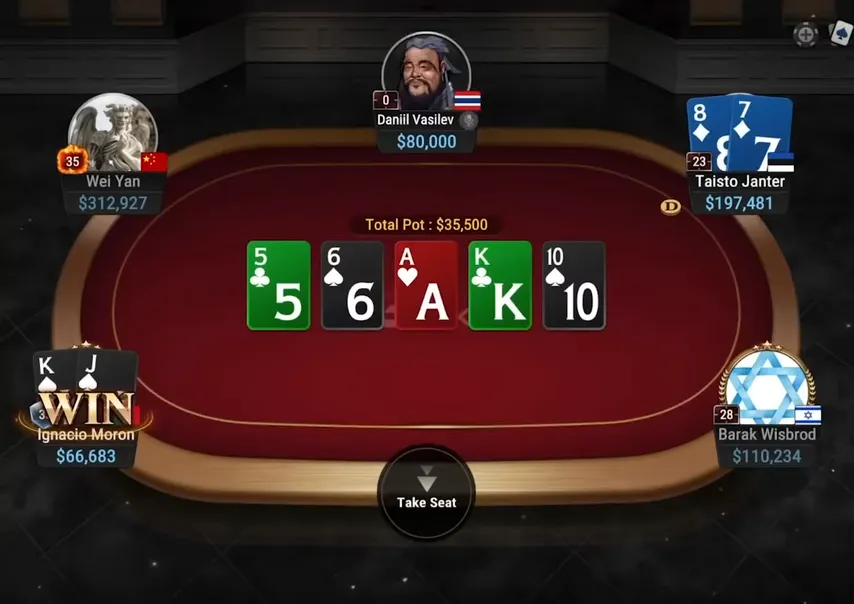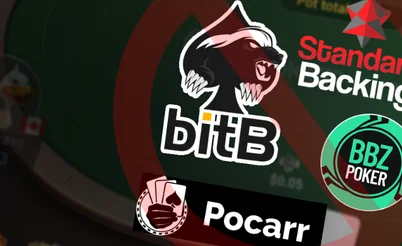The 2 Card Confidence channel published an interesting short video on identifying crushers. For the first section, a river overbet from Barak Wisbrod is analyzed. The second spot features Taisto Janter, another one of the top high-stakes players. Both hands are played on GGPoker's $200/$400 tables.
If you're playing $200/$400, some of the highest stakes possible online, you can't hide from elite players. These guys are some of the best players in the world. However, if you play mid-stakes or lower and see your opponent make a play like this, you should be alarmed and maybe try to avoid playing against them too much.
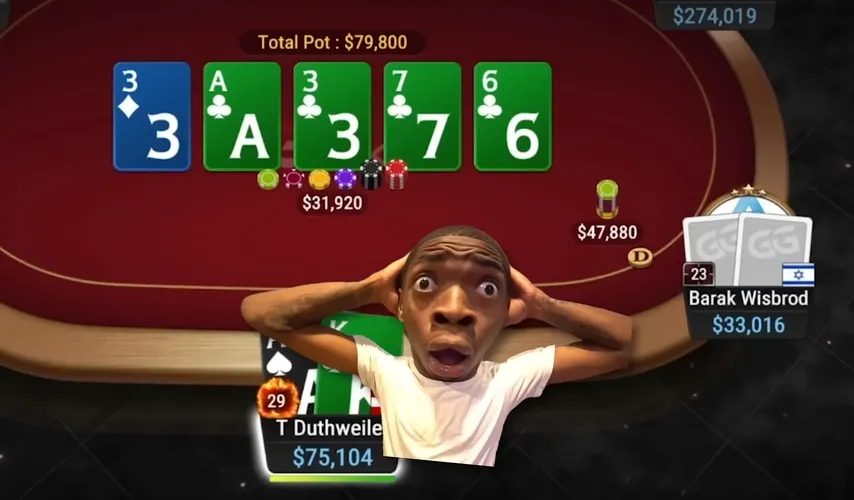
Let's see what it is and how you can be able to make this play yourself and be the one who is feared by your opponents.
Preflop and Flop Action
3-betting Ace-King and flopping top pair is always nice.
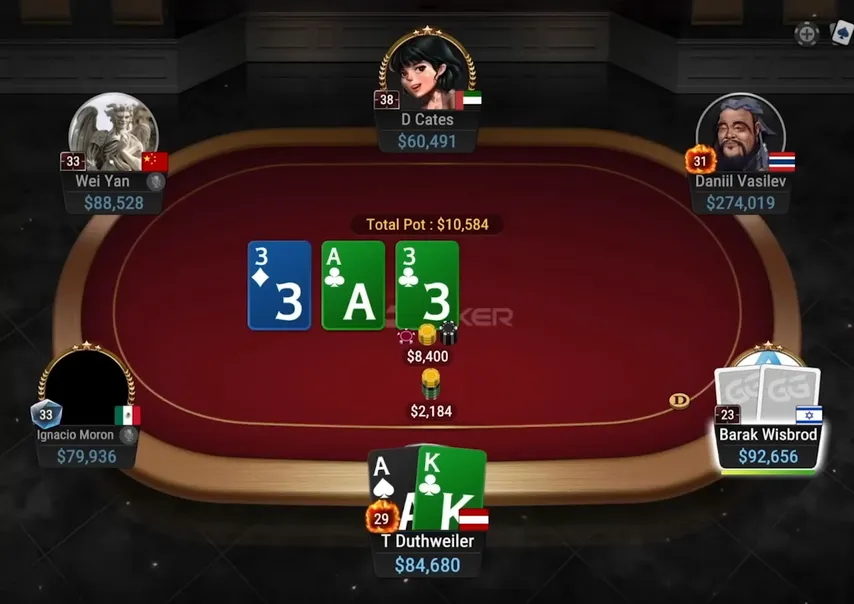
A 25% c-bet is the best sizing to use on this flop, and you could do it with your complete range. Even when betting so small, your opponent would have to fold 33% of the time because his wide calling range on the button is much wider with the 200 big blind stacks than with 100 big blinds, and a lot of his hands completely missed the flop.
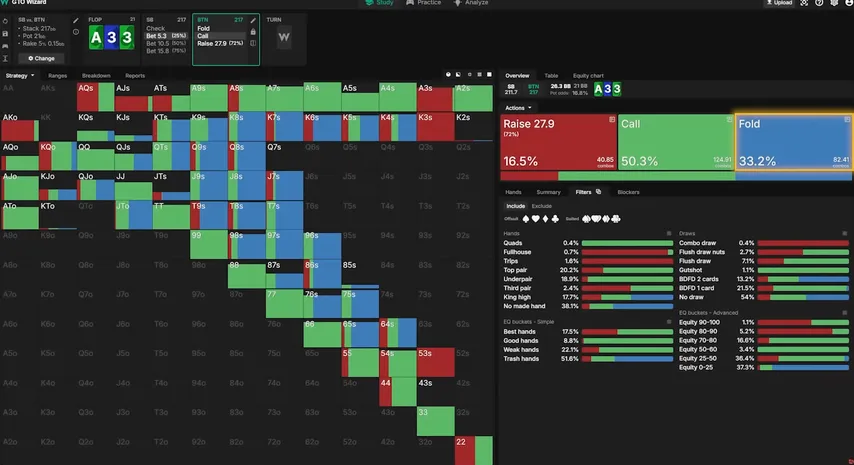
The weakest hands he would still have to call are some Queen and Jack-high hands with backdoor flush draws.
The Turn Action
The turn brings in a flush, which is not too much of a problem when we have the , but overall, it does make both players' ranges quite equal in terms of their strength. We did have a big advantage on the flop, but when we c-bet every hand in our range and the button folds the bottom third of their range, we must take that into account when playing the turn with our range.
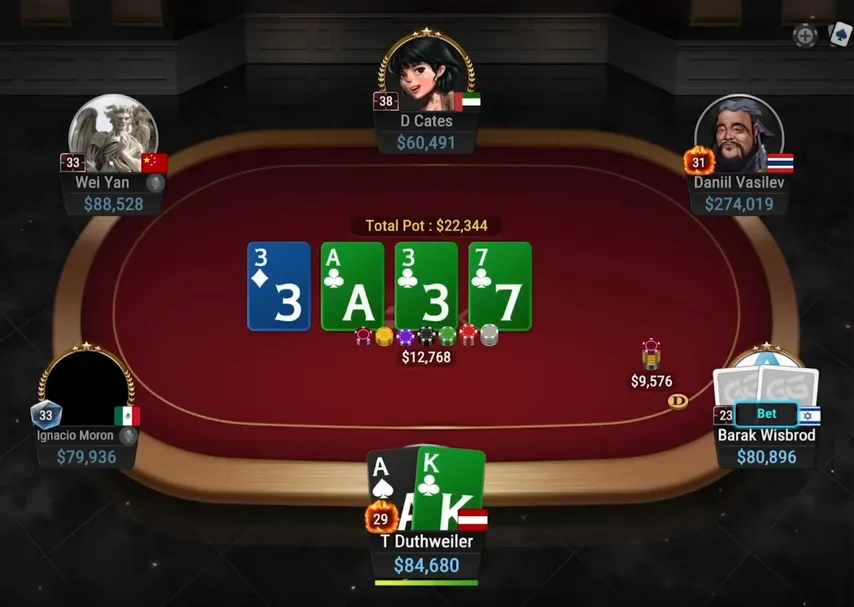
Our hand could go for a bet here, but checking is also very much a thing.
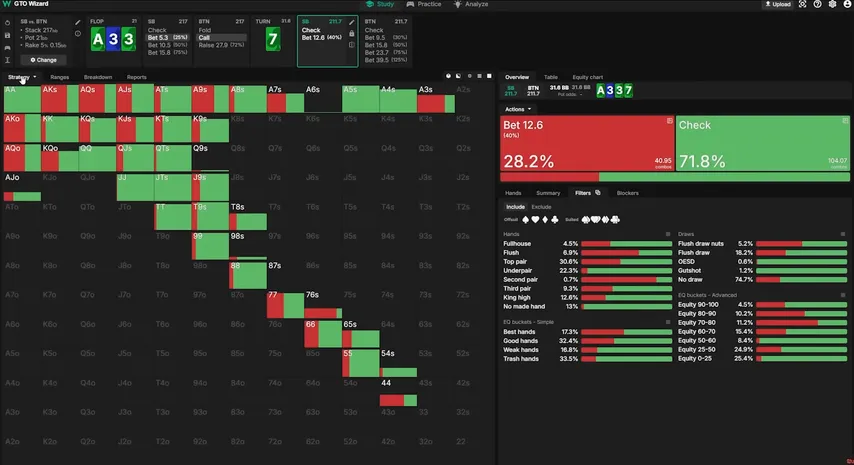
Against a bet, we have an easy call, of course. Villain could have a lot of good hands, but against any flush we have outs, and he could simply be bluffing.
River Action
On the river, we hit our flush, which is great. Now the solver would implement a donk betting strategy here, and Ace-King with a club would be a big part of it.
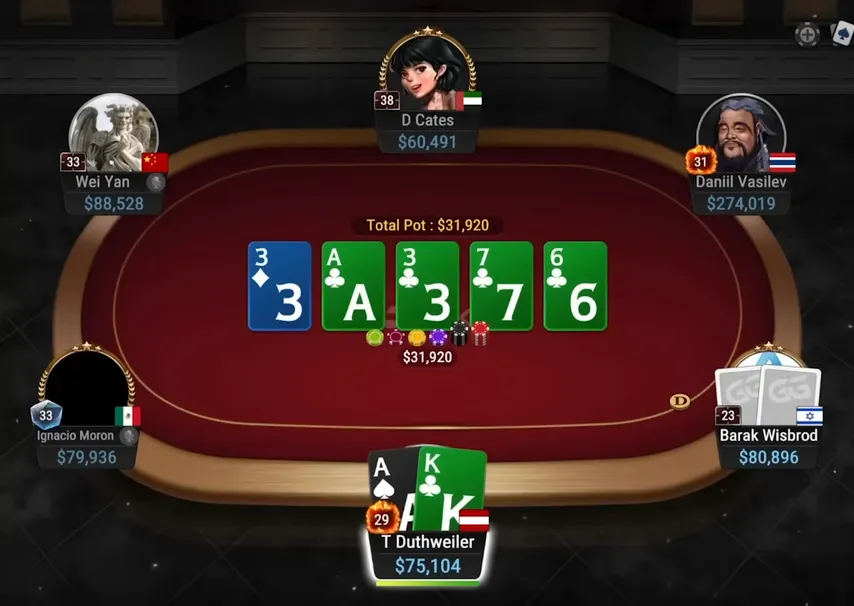
There's a big shift in equity, and high clubs like , , , and can get value that they wouldn't when the Villain checks behind a lot of lower flushes, for example.
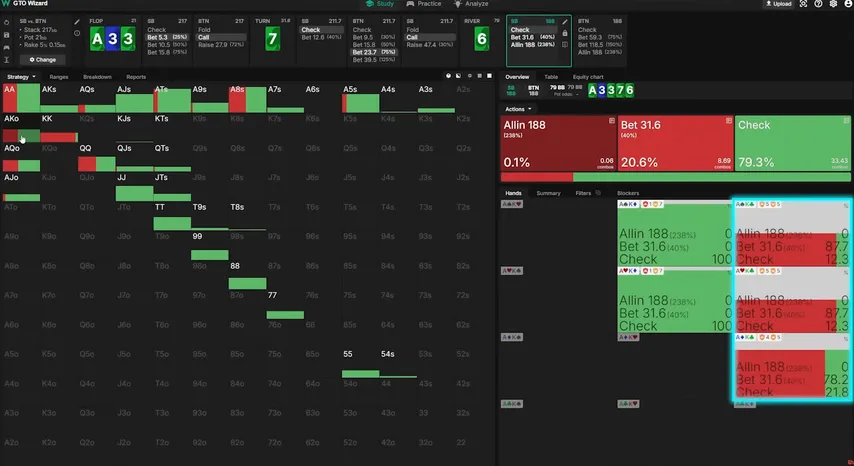
Also, checking only really makes sense when you expect your opponent to be able to have bluffs here, which could be pretty difficult on this spot.
We do see a check though and get confronted with – this.
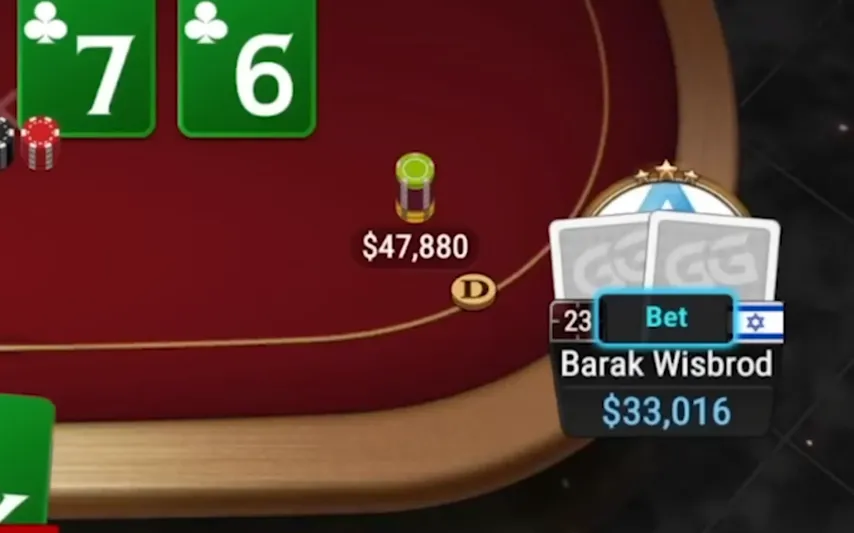
Now, the interesting thing here is that this really big bet is very polarizing. It's either the nuts or a bluff because it wouldn't make sense to bet anything worse than a nut flush for this size. And since we have the , it's either a full house or better, or nothing.
But as just mentioned, finding bluffs on this runout isn't easy. A lot of hands that float the flop include a , as do many hands that bluff the turn. So which hand can you think of that gets to the river as a bluff?
Well, for the solver, it would be hands like , , and , and without a . But these are really hard to find in practice. What's way more likely for most players, even good ones, is to mostly check them and try to win a showdown. So very often these wouldn't even bet the turn.
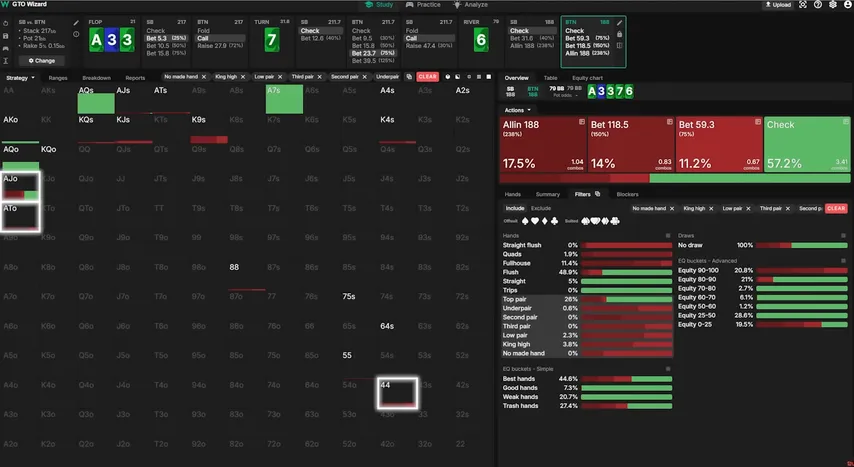
For us as the guy facing the bet, we have to remember that an opponent needs to find not some of these bluffs, but all of them for us to have a profitable bluff catcher.
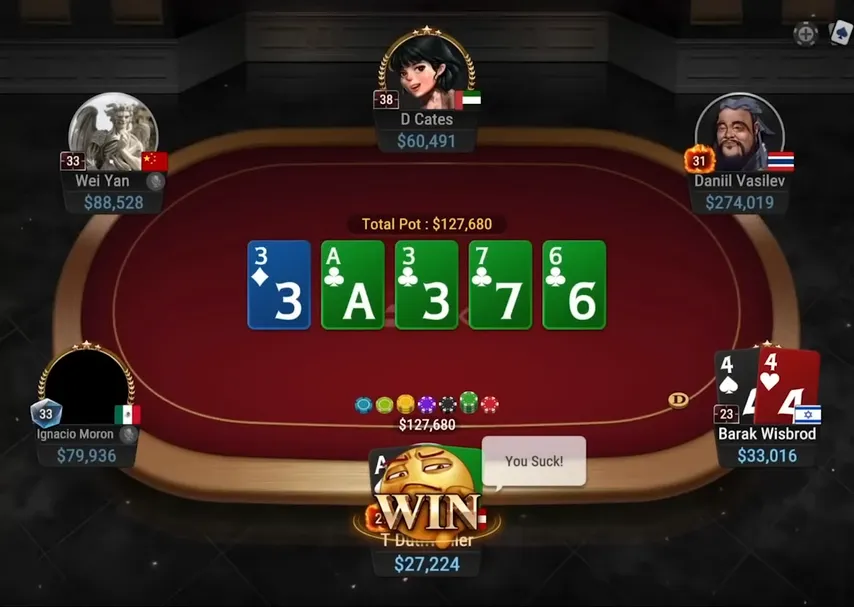
So when you see someone who is capable of finding some of these bluffs, then you know you're facing an elite player.
But, what can be more important for you and something you can exploit more easily, is knowing about the flip side.
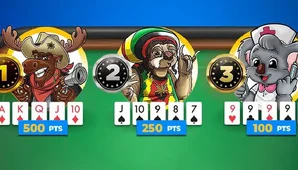

The Flip Side: Exploiting Weaker Players
in the big blind is a good hand to 3-bet and can be c-bet for 20% pot as Ignacio does here.
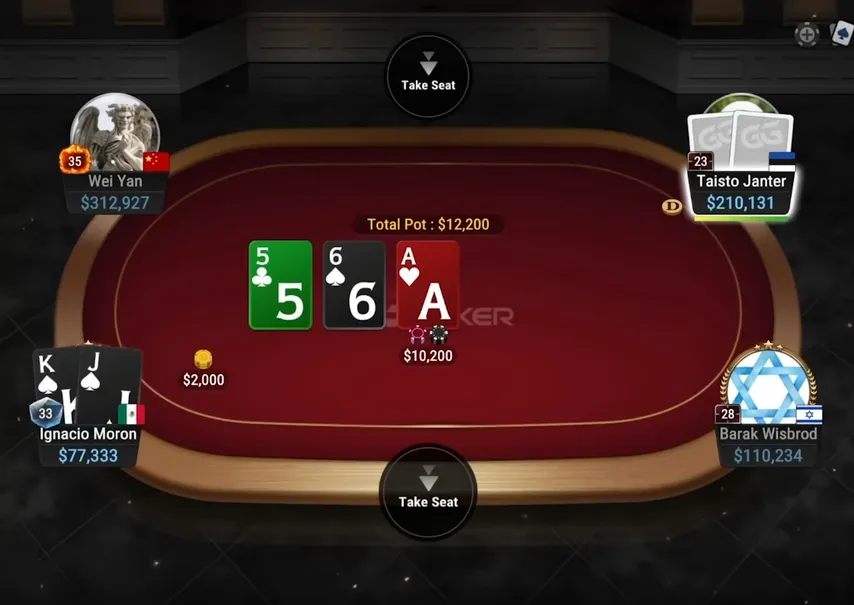
Now in this spot, our opponent would only need to fold less than 15% of his hands. Many hands have decent equity, including direct or backdoor draws, so only the ones without or with really bad backdoor equity would have to be folded.

The on the turn heavily improves our range as we are the one who has a lot more Ace-Kings, Aces, and Kings in our range.
Combined with the 200 big blind deep stacks, the solver would go for an overbet here to get max value out of these best hands. As usual, a big bet size means a polarized betting range, so mostly very good and very bad hands.
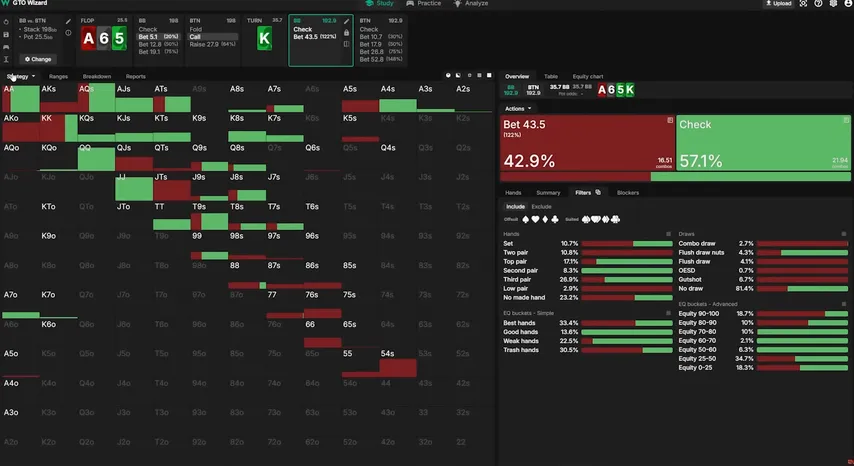
So our second pair of Kings falls exactly into the category of hands that are never bet here.
Facing a bet here isn't very comfortable since there are of course many hands that beat us. However, we saw that there are also a big amount of draws that called the flop, so with so many bluffs possible in Villain's range, we still have a call here.
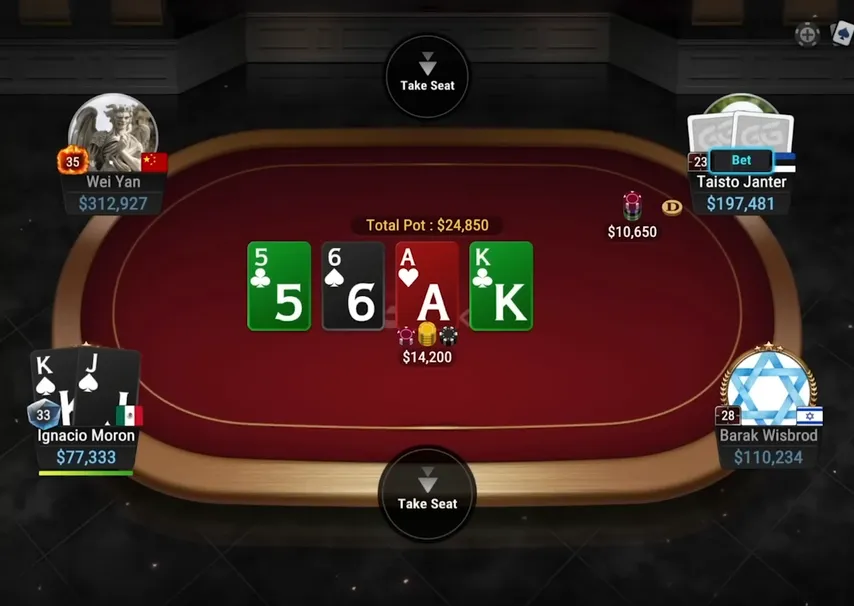
On the river, we can see the exact opposite of the hand we saw before.
Here, Taisto's range can include a lot of bluffs. Hands like 7-8 suited, 7-9 suited, and 8-9 suited are very natural bluffs that pretty much anyone could arrive at this spot with. Jack-Ten and Queen-Ten of clubs are also understandable to be called on the flop and be bet on the turn.
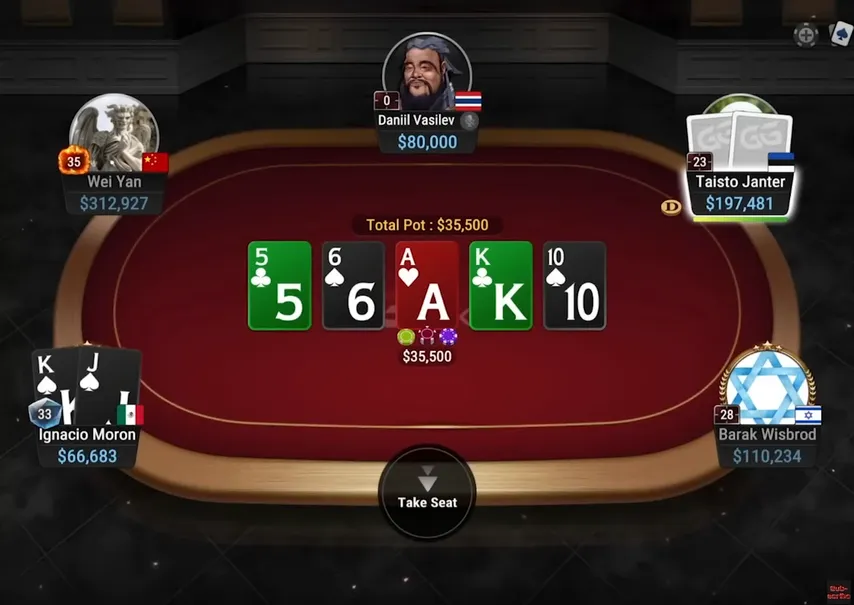
Pairs like threes, fours, sevens, eights, and four-five and sixes are almost as difficult to find as the pairs in the hand before, but they are also a lot more. So the range of hands Villain could select as a bluff here is way wider than in the first hand, which is why in practice this spot is much more likely to be over-bluffed, whereas the first spot will be heavily under-bluffed.
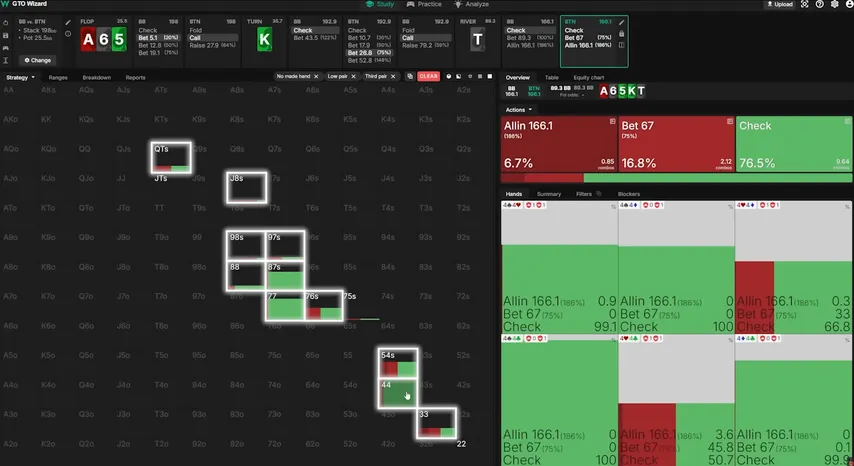
Here, even a hand like 7-8 suited would have to be checked back even though it is the literal bottom of Taisto's range. Very unintuitive and unlikely to happen in practice. But why is it not bluffing?
Well, in this spot, the button's range is extremely divided. Every hand worse than a pair of Kings is actually worse than every hand in the big blind's range. So when a low pair doesn't even have any showdown value, choosing bluffs is completely detached from that criterion.
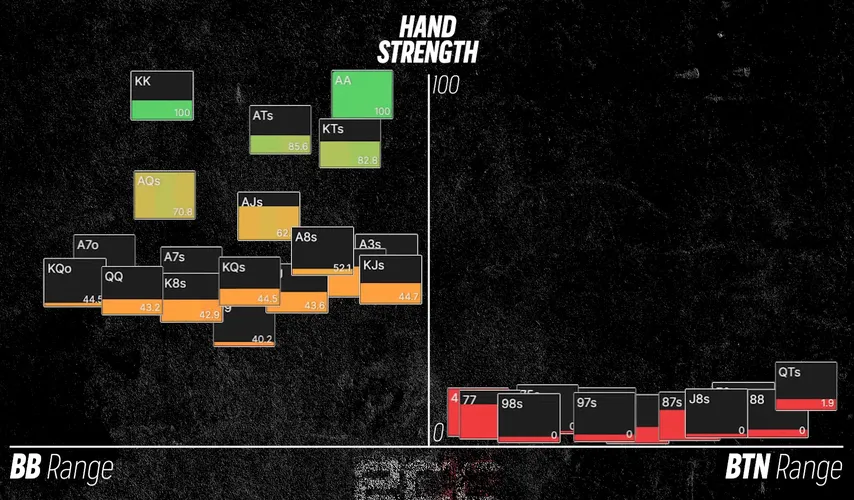
Here, of all third pairs and lower hands in the button's range, the best bluffs are those that block the most amount of calls while also unblocking the most amount of folds. And 7-8 suited blocks more folds in A-7, A-8, and King-8 than Queen-Ten suited, for example, which blocks more calls like Ace-Queen and Ace-Ten.
So while not bluffing the bottom of your range can just be a mistake made by a weak player, in spots like this where it's very easy to over-bluff, it can also just show an elite player.
